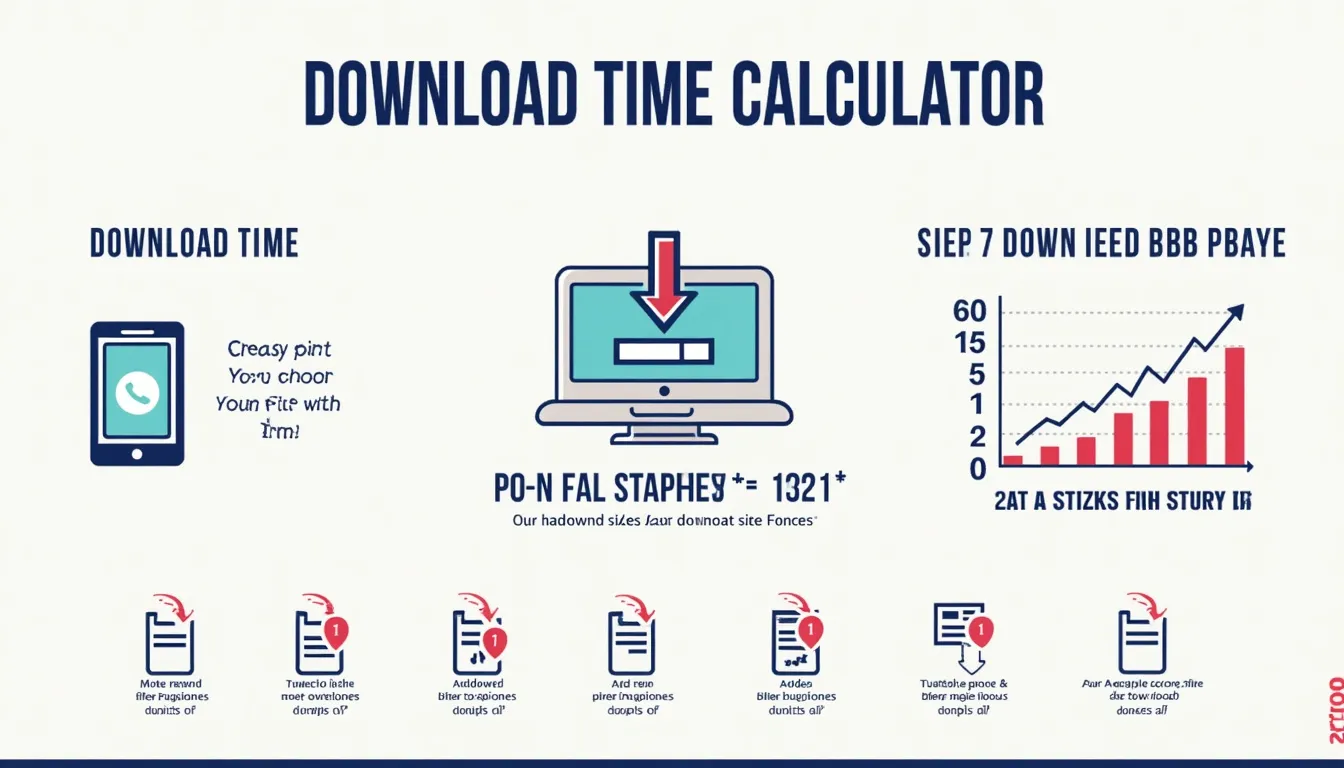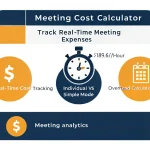Is this tool helpful?
How to use the tool
- File size – type any positive value, e.g. 2 000 or 85. Choose a unit (GB, MB, etc.).
- Download speed – enter your measured bandwidth, e.g. 100 or 50, then select bps/Kbps/Mbps/Gbps.
- Efficiency factor – optional 0-1 number that lowers the theoretical speed to reflect protocol overhead (0.85 = 85 %).
- Press Calculate to see the estimated time in seconds, minutes, hours, or days.
Formula used
All values are converted to bits before calculation.
$$\text{Time (s)} = rac{\text{File Size (bits)}}{\text{Download Speed (bps)} \times \text{Efficiency}}$$
Example 1: 2 GB file on 100 Mbps link, 0.85 efficiency
- File size in bits: 2 GB × 8 × 1024³ = 17 179 869 184 bits
- Adjusted speed: 100 Mbps × 0.85 = 85 000 000 bps
- Time: 17 179 869 184 ÷ 85 000 000 ≈ 202.12 s ≈ 3 min 22 s
Example 2: 85 MB file on 50 Mbps link, 0.75 efficiency
- File size in bits: 85 MB × 8 × 1024² = 713 031 680 bits
- Adjusted speed: 50 Mbps × 0.75 = 37 500 000 bps
- Time: 713 031 680 ÷ 37 500 000 ≈ 19.01 s
Quick-Facts
- 1 byte = 8 bits (IEEE Std 610.10-2022).
- Global median fixed-broadband speed: 117 Mbps (Ookla Speedtest Global Index, 2023).
- TCP/IP overhead averages 3-5 % on high-speed links (Cisco White Paper, 2018).
- “Efficiency values between 0.7 and 0.95 cover most real networks” (RFC 3649, 2003).
FAQ
What does the efficiency factor do?
It reduces the theoretical line speed to account for protocol overhead and congestion, giving you a more realistic duration (RFC 3649, 2003).
How can I find my true download speed?
Run at least three tests on Speedtest.net or Fast.com and average the results for accuracy (Ookla, 2023).
Why is the calculator’s time shorter than my real download?
Wi-Fi interference, server throttling, and TCP retransmissions can cut effective throughput by up to 20 % (Cisco White Paper, 2018).
Can I estimate upload time?
Yes—enter your upload bandwidth in the speed field; the same formula applies.
Does file type change the time?
Only file size matters; compression lowers size and therefore time (Apple Developer Docs, 2022).
Is Mbps the same as MB/s?
No. 1 MB/s equals 8 Mbps because of the 8-bit-per-byte rule (IEEE Std 610.10-2022).
How large a file can the tool handle?
The math works up to petabytes; browser number limits start distorting above 9 PB.
“TCP incurs roughly 5 % overhead on high-speed links.” Why?
The quote refers to header bytes, acknowledgments, and retransmissions that reduce payload throughput (Cisco White Paper, 2018).
Important Disclaimer
The calculations, results, and content provided by our tools are not guaranteed to be accurate, complete, or reliable. Users are responsible for verifying and interpreting the results. Our content and tools may contain errors, biases, or inconsistencies. Do not enter personal data, sensitive information, or personally identifiable information in our web forms or tools. Such data entry violates our terms of service and may result in unauthorized disclosure to third parties. We reserve the right to save inputs and outputs from our tools for the purposes of error debugging, bias identification, and performance improvement. External companies providing AI models used in our tools may also save and process data in accordance with their own policies. By using our tools, you consent to this data collection and processing. We reserve the right to limit the usage of our tools based on current usability factors.







